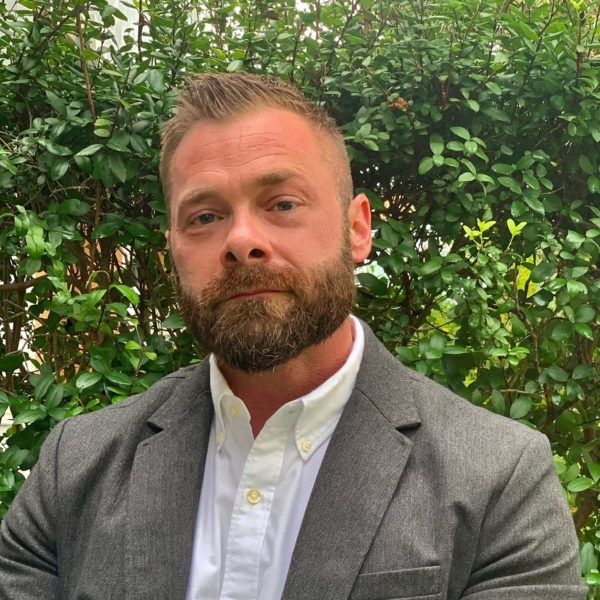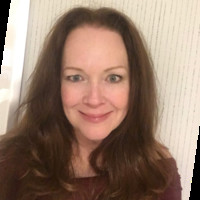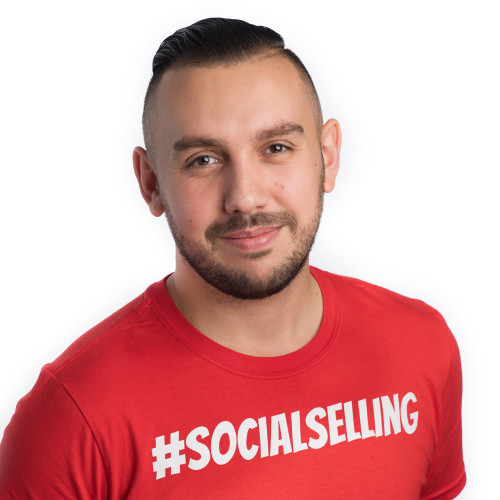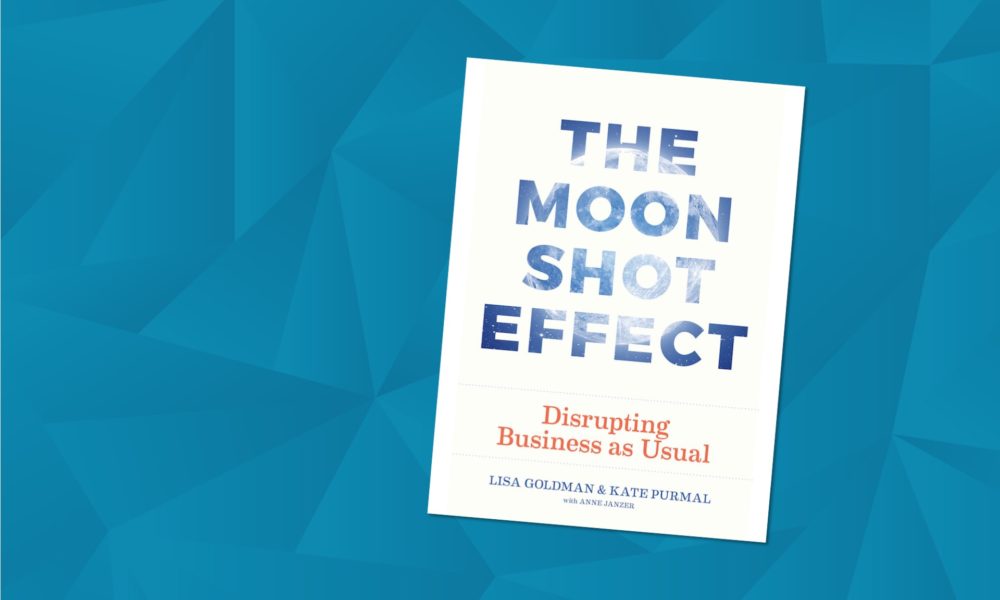Episode 102: Chris Kingman on Professional Development to Hone Your Enablement Craft
2.4K Views | 25 Min Read
Shawnna Sumaoang: Hi, and welcome to the Sales Enablement PRO podcast. I am Shawnna Sumaoang. Sales enablement is a constantly evolving space and we’re here to help professionals stay up to date on the latest trends and best practices so that they can be more effective in their jobs. Today I’m excited to have a returning guest speaker join us, Chris Kingman, the director of international enablement for TransUnion.
Chris, I would love for you to introduce yourself, your role, and your organization to our audience.
Chris Kingman: Sure. So as Shawnna said, my name’s Chris Kingman. The director of international enablement at TransUnion. My role is where I hold responsibility and helping drive and support all of the typical enablement activities or functions that we see that help drive operational strategic growth goals aligned to revenue achievement. It’s just a really fancy way to say I try to make sure that our sellers have all the tools, technology, knowledge, skills, and abilities they need to be successful across the globe.
SS: Well, Chris, I’m glad that you’re back to join us today. Now, today, I want to focus a little bit about the role of sales enablement. I’d love to hear from you in your opinion, what skills and expertise are needed to excel in sales enablement role?
CK: Sure. So a really simple one I think is often overlooked is listening skills. And that’s just, you actually have to hear what your quote-unquote customer really needs. Right? It’s no different than what we’re really trying to prepare our sellers with. You have to have a good attention to detail and talking to your stakeholders internally, and you know, a skill listening isn’t necessarily a skill so you have to develop it into active listening and that’s really just, you know, understanding what people say and retaining that information.
I also think the ability to look at a situation or a challenge from both a microscopic lens and a macroscopic lens is key. And when I say that a lot of the times some of the thought leaders will say, you know, systems thinking is the way to sort of be successful in enablement. I really just think having the ability to sort of look ahead, several steps are key and you have to have sort of an understanding of your business, but also a curiosity to go from very minute details and very tactical items, very, you know, point and click type direction, all the way to large scale or enterprise-wide, organization-wide impacts of what you’re doing and the impacts of what decisions you’re making.
I think that is a skill that it takes a lot of time to develop and refine but it will aid enablers, you know, to really go from sort of a single faceted role or somebody that only is responsible for one discipline, one function to a leader to really, you know, a strategic position within your organization is how can I help drive the strategy, how can I direct the business and support the decisions the business makes? That’s one of the key ways to do it is, is having that ability to, you know, pop in and out if you will, of, you know, small scale action, small scale impacts and think broader and broader and broader as broad as you need to go.
I think one of the final things, and I don’t necessarily know if it’s a skill, maybe it goes under expertise is, you should always kind of keep one foot on the front line. I never tried to be too far away from my sellers or my sales leaders. They never, never out of touch, never out of reach if they have a challenge, a question, and it’s just a great way to always understand what they’re really dealing with. On a long enough timeline if you’re pursuing several very strategic things that may take 18 months, three years to implement, you may forget, you know, while you’re doing things, you may forget what’s actually happening in the real world where your sellers are operating so I think even just having an open dialogue with your people is great.
I try to position myself as a resource to them and always be available or always be open to feedback, information, or really, you know, complaints, even complaints. One of the areas that you can really get a lot of the best insights as to what’s happening in that space then I think always keeping, even in the back of your head, it’s just, you know, what’s going on with my sellers is another key sort of area of expertise that will help, enablement practitioners.
SS: Absolutely. Now for practitioners that may be newer to the role and the profession, what advice do you have for them about how to develop some of these critical skills and knowledge that you’ve been talking about?
CK: Sure. So, becoming a good listener takes practice. It actually takes practice. The great thing is it’s not a hard exercise to complete. Just be very conscious that when someone is explaining something to you, let them talk and let them explain whatever it is that they’re talking about fully in as much detail as they can provide you and then try to repeat it back, as you understand, in a real simple way is so here’s what I heard you say.
And then tell them what you believe they said and see how close it is to what they say. That is, you know, not necessarily an exercise, it’s something I would recommend you do every time someone gives you some piece of information that’s important, but it really helps you hone in on well, what, what are you really saying? A lot of the meat can be lost in somebody just trying to get a point across and they’re, you know, maybe they’re over just dating or they’re talking a lot or they’re just terrible at stories. It helps you focus and get to the point without being a little blunt and saying, “well get to the point.”
So I think that’s a really easy way to go about it certainly makes you a better listener. Now, when we talk about, from the macro to the micro and having that ability to go back and forth, one thing, I’ve always challenged the people whenever we are on teams to do was, think about whatever it is you’re building or problem you’re trying to solve and just continually to ask yourself, okay, and then what? Okay and then what? Okay and then what? I do this when I designed programs that, you know, I have to roll out globally or, or I’m reviewing things with my team, you know, how can this go wrong? You just keep asking that question. Okay. Then what? Okay. Then what, and if you can’t answer it, whether you’re saying scaling something up or whether you’re troubleshooting, that’s an area that you’re going to want to spend a little bit more time developing or focusing on. Right.
And I think success in enablement is a mix of somebody that can have that level of detail, you know, that translates into frontline activity of, of do this, do that as well as that macro view of, you know, I need to holistically change how we do something and here at a high level is the steps that we need to take at a high level of tiers. Here’s the potential pitfalls, and at a very tactical level here are the breakdowns of what’s going to happen here is, you know, where things can go wrong. And being that intentional with that exercise to say, okay, and what as ridiculous as it sounds as simple as it sounds, it does force you to think through all possibilities of ways things can fail. I think that can really tie back to you just a stronger approach to enablement.
SS: Absolutely. Now sales enablement practitioners spend a good portion of their career helping reps with their own professional development. But what do you see as the benefits of professional development for sales enablement practitioners themselves?
CK: So, there’s, there’s a huge benefit agnostic of being an enablement practitioner. Right. And, everyone should do it. Now I’ll use that blanket statement. For our colleagues in enablement this is a great time to really figure out where you want to go so there is no right path right now and enablement, we all want to be more strategic. Some of us have that C-level ambition and that’s great, but there’s nothing wrong to say that you can’t just be an excellent enabler in a function or a specific discipline. I know sales trainers that that’s all they want to do with sales trade, and they do it exceptionally well because they love doing it. For those looking from those lenses, I would say, first, really focused on what you want to do, figure out what you want to do, or an idea of what you want to do and learn as much as you can about that particular discipline.
So, if you want to master the CRM, right? And we’ll just use Salesforce as an example. There is probably an endless supply of content and training and material that will teach you how to be as good as that platform, as informed as possible and how to leverage it to your business’s benefit. You could spend, there’s a recruiting agency just for Salesforce people. That’s how in-depth this option or a route could be. It’s the same thing for training. I would say from a professional development standpoint, seek out the certifications, seek out the labels, the awards, the accolades that say you’ve mastered this and then do that and then move to something else.
If your content or you think there’s time to expand, for those that want to be enablement leaders, I think it’s a huge portion of your career progression is to seek out professional development, you know. If that’s the route you want to go is to be a leader of enablement function, then I think leadership and managers development is really where you want to focus your time. And if you are an established leader, if you’ve been doing enablement for a period of time or went from ops and transitioned over, or you, you know, you run a team, I think you should pursue things a little bit more on the business development side. Similar, like an MBA, I wouldn’t necessarily push an MBA, but something of that factor, maybe, personal certifications or academic certifications, like, Harvard and Yale though, they do the summer courses about analytics or running a PNL or anything like that, that’ll benefit you.
Or if you want to go the complete opposite way, and you want to position yourself as a, you know, a thought leader or a brand even. Seeking out ways to make your writing better if that’s your medium, or professional speaking training. So, I can personally attest to the value of that. I’ve done that before, you know, leaps and bounds improvements in how I speak in front of audiences or I address executives and things like that. I think all of those are, absolutely necessary for your career advancement.
SS: Well that’s a great segue. I’d actually love to hear from you, what are some other actions you’ve taken to enhance your own professional development and how has that impacted your growth trajectory?
CK: Sure. So, in no particular order, I think that I spent a lot of time sort of trying to master specific disciplines. I started in training even all the way back to my first job when I was 15 scooping ice cream. I immediately learned how to do it and I was training everybody else how to do it. And then every job I’ve ever held has had a training element to it, or I’ve just been tasked with the training piece of it. So, in the corporate environment or the startup to a corporate environment, I largely handled training. And then as I’ve sort of gotten better or I’ve mastered things, I’ve taken on additional responsibilities on the side and, if you could picture sort of shifting things across your desk, as the training is getting it has a life of its own if you will, as it’s demonstrated its value, as it’s worked into literally the culture of the organization, that’s about the time that you can have somebody take it over for you and only build upon what you have and you take somebody who is, you know, maybe a dedicated sales trainer, somebody that has a full passion for it to make what you have even better to demonstrate and expand upon the value as you transitioned into, you know, something else.
I think, you know, as, as I’ve progressed and worked on sort of getting all of the disciplines down, then I transitioned over to technology and just try to educate myself as much as possible on sales stack cause that was, you know, that was all we were talking about probably like two or three years ago with sales stack and the right sales stack and you had to have this stack and that stack. So I just educated myself as much as possible, you know, trying to master how to leverage your CRM, how to tune it for a positive seller experience and make sure that our sellers were using not even using the tool, but the tool was calibrated to make them more successful.
And then, as I sort of climbed the ladder, I would say I have focused more on developing my presence among executives working with, you know, senior-level executive, C-level executives, along with handling, coordinating larger and larger initiatives, right? Large scale technology platform rollouts across the globe or, large scale meetings in which you have to have an agenda and a program and a theme that fits and is applicable to as many people as possible. And so, sort of taking on larger and larger responsibilities, taking on larger and larger roles, has been kind of how I’ve been exposing myself and trying to make myself better and better and better. And then on top of that, seeking additional training in any format, really, whether it be, you know, professional speaking training or. I’m working on my writing or what I find most valuable is just sort of the conversations with my peers and colleagues about how, how would you address this situation or how would you do this, or, you know, active in sales enablement society. It’s certainly talking to fellow practitioners who are in similar roles and seeing how they do it and learning about the organizations that have been all the ways that I’ve found beneficial in my development.
SS: Fantastic. Now you talked a little bit about how your own role has evolved, but as the sales enablement profession continues to evolve, where do you see there being opportunities for practitioners to maybe pursue slightly more specialized roles?
CK: So not that we’re not all sick of talking about it, but the immediate, you know, the benefit is helping people adapt to this virtual environment, right? It’s not comfortable for everybody. I think that’s a fair way to put it. Some people are, are just very off-put by all of the technology, all of the digital aspects of it, the distractions, right?
All of those things, they come into play. If you have a typical enterprise-level representative their majority interactions were scheduling a meeting, getting ready for the meeting, and then you’re in a room with executives. No one’s coming in and out. There are no screaming kids. No one’s doing the dishes. All of those things that are now normal, they won’t be normal forever, but helping people deal with that I think is the absolute immediate need. It’s not hard, every company, every vendor, everybody’s putting out a fact sheet or a one-pager or a webinar about how to deal with this. You can certainly pull all of that in, make your own flavor, and at the bare minimum enable your sellers.
Longer-term, I think that sound strategies to pick a discipline or a focus and just immerse yourself in it. And you know, this has kind of been my strategy. I want to caveat and say, I don’t know if this is the right strategy, but this is what’s worked for me. Both in an office environment where I was there all day, you know, the nine to five schedule, and then in my role now internationally where it’s hours fluctuate, you know, who I’m speaking with and what their challenges are all different based on their region.
But now is the time to get exposed to the functions that fall under the enablement umbrella or maybe the disciplines. Right. So maybe call QA is big because you have a very well adapted organization that has, you know, digital calling or dialers and maybe analyzing calls or something that you’re interested in because that’s very impactful. I think it can be overlooked sometimes how much you can learn from listening to an interaction and then the coaching. Now’s the time to learn about it and see how you can take maybe what you have and make something out of it. Maybe it’s as simple as educating your sales managers, incorporating a coaching session, creating a scorecard.
There’s no limit on what you can do. I would say pick an area of interest, educate yourself, and then figure out how to derive value for your business out of that. You can master your CRM, you can master sales training. I think you just have to identify what’s of interest to you and what can fit within your bandwidth. While you may have a primary focus, let’s say you are the sales trainer for an organization, identify areas that your business could be better, where you could bring value at no cost to the business. The only thing that’s going to cost is your sweat equity. You have to put in the work.
If anybody works at a startup or has worked at a startup, you’re familiar with the idea that it’s probably not money to do a lot of things. So, it’s really just the ingenuity, the time the patience and the knowledge of the people that really put these things together. But if you can prove value, they’ll find the money and if it brings in money even more inclined to invest in it. I think now is the time to ask those questions and ask yourself certainly challenged your own knowledge of how your business works.
But go to your frontline, go to your sales leaders and say, “where do you need help? Where can the business improve? What processes are broken? What don’t you like?” You know what, my two favorite questions and I think you were there when I talked about it is, what sucks? And how do we fix it?
It doesn’t have to be a big consulting engagement. You can really just ask the questions of where this business can be better. And then as an enabler, take that back and figure out what you can do about it. Chances are, there is something that you can do. You will find an avenue, you will find something of interest at the bare minimum if you don’t abandon the pursuit, you will solve a problem. And if you solve that problem, you’re inherently providing a value or you’re preventing waste or something to that degree that I think on a long enough timeline as a practitioner you get a bunch of wins like that under your belt, it’s going to, you know, it’s going to turn heads, it’s going to turn a lot of attention to what you’re doing as a, as a practitioner. And it’s ultimately going to be now, you’re the one people are going to come to with the problems versus you right now, using the opportunity to sort of go find it.
SS: I think that’s fantastic advice, Chris. Now in closing my last question for you, what are some steps that you would recommend practitioners take in order to advance their careers?
CK: So, you know, if you’re young, you’re not tied down to anything. I am a big advocate for, go move somewhere where a job sounds great. And really the job exposes you to things. If you don’t have that ability, maybe you have children, your parents, whatever, maybe the startup life isn’t for you. That’s fine. Just look for opportunities to provide value. The great thing about enablement to me is nothing’s off the table per se. Like if you can, you can fix a process, if you can align people, if you can get people talking, if you can do anything to make achievement or, you know, value capture of revenue happen, it’s under, it’s under your umbrella, you can at the bare minimum, look into it. And if you’re curious, if you’re really just curious, you can find a way to provide value. It doesn’t matter if you’ve been doing sales ops for 30 years, or you are fresh out of college and you’re an enablement person, maybe you’re running content management and someone has a platform. It doesn’t mean that you can’t look at other areas of the business within the sales umbrella. Don’t go sniff around finance just yet. It doesn’t mean that you can’t look at other aspects and just ask the question, how can this be improved? And you don’t even have to have the answer. You just have to ask the questions.
It’s been my experience that all of the challenges that I’ve gone and identified my frontline sellers and managers have told me about them, you know, the majority of them and they’re, they’ve probably pointed me in the right direction, either A) what they want to see or B) all you have to do is this and the problem goes away. The people that live it and breathe it every single day are going to be, you know, they’re your customers. But more importantly, if you do listen to them, they’re going to be your biggest advocates when you do solve those problems. And as somebody who wants to further their career then, you know, the easiest thing to put you in that position to grow, I would say, is to add value. And it’s really the guarantee to advancement. If you continually add value, there’s really few reasons or few limitations why you can’t progress or you can’t, you know, whether it’s a, you climb higher or your organization, your team gets wider. There are few things that’ll get in the way as long as you continue to add value.
SS: Absolutely. Chris, thank you so much for joining us again. I always enjoy our conversation and
CK: Always a pleasure.
SS: To our audience, thanks for listening. For more insights, tips, and expertise from sales enablement leaders, visit salesenablement.pro.
If there’s something you want to share or a topic, you’d like to learn more about, please let us know. We’d love to hear from you.














